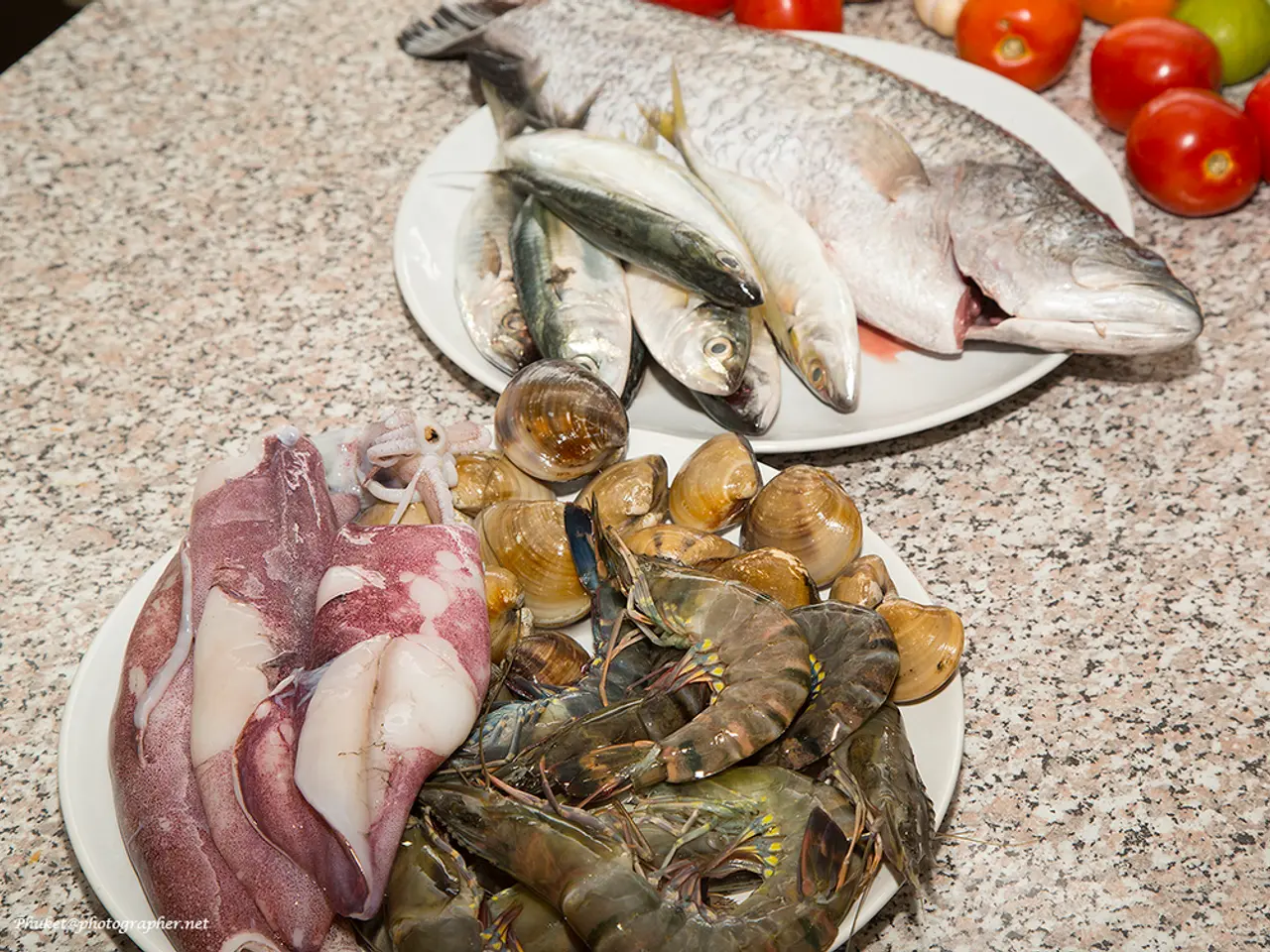Mitsubishi corporation broadens its reach in salmon aquaculture through purchases in Norway and Canada.
In a significant move aimed at consolidating global supply chains and addressing the growing demand for protein sources, Japanese conglomerate Mitsubishi has announced its expansion into the salmon farming sector. The expansion, conducted through Mitsubishi's salmon farming company, Cermaq Group, will see the acquisition of additional assets from Norwegian Grieg Seafood ASA, valued at around $990–993 million.
This deal adds salmon farming businesses in Norway and Canada to Cermaq's existing assets in Norway, Canada, and Chile. As a result, Cermaq's annual salmon production capacity is expected to increase from about 200,000 tons to approximately 280,000 tons by the 2027 fiscal year.
Mitsubishi's strategic goals for this expansion are multifaceted. The company is seeking to diversify its business beyond fossil fuels, securing stable revenue streams amid global population growth and rising demand for protein sources such as salmon. Furthermore, the acquisition strengthens Cermaq’s position as a global leader in sustainable salmon farming, emphasizing environmental standards and responsible production techniques.
The expansion also supports Japan’s local sourcing goals. Despite salmon being a popular sushi ingredient in Japan, much of it is currently imported. Japan aims to increase the share of locally sourced seafood it consumes from 54% today to 94% by 2033. Mitsubishi’s expansion aims to supply more salmon potentially nearer to the Japanese market, supporting this policy goal and advancing food security.
Mitsubishi is not alone in this strategic move. Companies such as Mitsui and Marubeni are also present in the seafood business in Japan, with a focus on protein sources. Marubeni, for instance, has begun selling salmon from a farm near Mount Fuji operated by its Norwegian partner.
The food sector is expected to grow alongside a rising world population, and securing food resources has become a critical global challenge. Mitsubishi's expansion aims to address this challenge by innovating in sustainable seafood production and consolidating global supply chains in key salmon-producing regions.
In summary, Mitsubishi's salmon farming expansion reflects a strategic move to consolidate global supply chains in key salmon-producing regions, innovate in sustainable seafood production, and align with Japan’s increasing focus on local food sourcing and protein diversification in its food security plans.
- Mitsubishi's expansion into salmon farming, as part of their strategic goals, aims to diversify their business beyond fossil fuels, thus securing stable revenue streams in the finance sector for the company, especially considering global population growth and rising demand for protein sources like salmon.
- With this acquisition, Mitsubishi's salmon farming company, Cermaq Group, anticipates a significant increase in its annual salmon production capacity, which could potentially support Japan’s local sourcing goals, strengthening food security within Japan.




